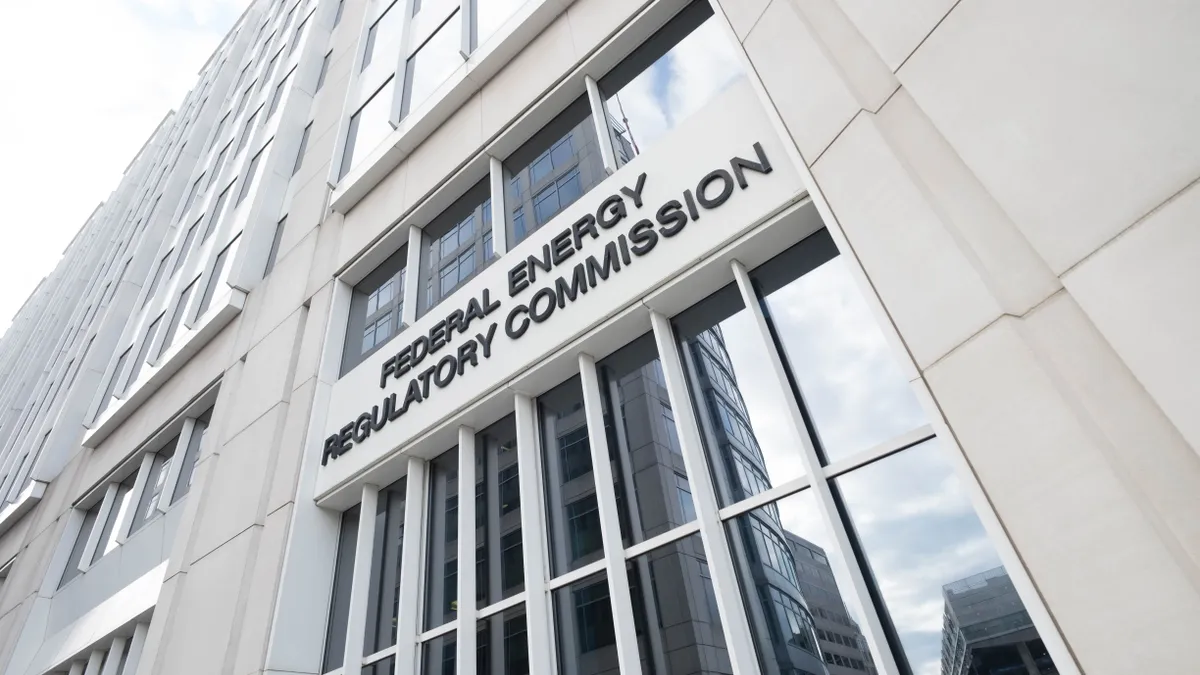Dive Brief:
- The Federal Energy Regulatory Commission announced a notice of proposed rulemaking (NOPR) to change electric transmission incentive policy and stimulate much-needed transmission infrastructure development, during its monthly meeting on Thursday.
- FERC's approach would shift from a "risks and challenges" framework to a model that grants transmission incentives based on benefits to customers. Several stakeholders advised a similar shift to FERC's framework when the commission opened an inquiry on possible improvements to incentives last spring.
- Parties will have 90 days to comment once the notice is published in the Federal Register, and many stakeholders hope to see a rulemaking soon. Commissioner Richard Glick, who dissented in part to the order, objected to the comment period as being too brief for substantial reactions during the novel coronavirus pandemic.
Dive Insight:
All three FERC commissioners agree on the importance of upgrades to transmission incentives, but Glick said the comment period should be extended to 120 days.
"Suffice it to say, utilities and other interested parties have more important things on their plate at the moment," he wrote.
Regarding responses to the novel coronavirus, Glick believes FERC should extend deadlines and create more flexibility during this difficult period for other regulatory processes as well.
Chairman Neil Chatterjee wants to "keep the business of the commission going," though he added FERC expects requests for deadline extensions on some of its processes, as stakeholders need to prioritize a response to the spread of COVID-19.
"Transmission incentives should be reformed to promote necessary investment in the transmission system, ensure grid reliability and resilience, promote economic growth, harness the nation's abundant domestic renewable energy resources and mitigate greenhouse gas emissions," Greg Wetstone, president of the American Council on Renewable Energy (ACORE) said in a statement.
"Ideally, these reforms would have already taken place," Wetstone said.
In 2005, Congress directed FERC through a section in the Federal Power Act to develop incentive-based rates for electric transmission. The commission had implemented incentives in the past, but the latest NOPR would more fully accomplish the intent of that rule by taking into account the changes to transmission since the past decade of rapid energy transition.
Most federal agencies already issue cost-benefit analyses for each decision issued, but as an independent agency, FERC isn't required to do that.
ACORE submitted plans in 2019 to consider transmission project benefits alongside costs, and a framework shift was the top suggestion in comments filed by Advanced Energy Economy.
However, in Glick's comments on a partial dissent, he said a proposed rule should look more fully at all of the transmission buildout benefits, not just lowering costs and easing congestion.
"I am concerned that this approach altogether ignores transmission projects needed to meet public policy goals, such as state carbon reduction targets, which are the country's most pressing transmission needs. I encourage parties to provide comments on the differing methods of measuring benefits," Glick said in his written statement for the meeting.
"FERC regularly says it's not an environmental regulator, but considering the ... emissions-lowering benefits of transmission is perfectly consistent of the use of cost-benefit analysis across other agencies," Avi Zevin, attorney at New York University's Institute for Policy Integrity, said.
Glick also expressed concern that the NOPR would double the incentive adder for transmission owners to remain in a regional transmission operator.
"There is nothing in the record to suggest that any transmission owner would leave an RTO if not for that handout," he said. "Simply put, the Commission wants to double the cost to consumers of an 'incentive' that does not incentivize anything."
When asked about the RTO/ISO incentive, Chatterjee told reporters he wants to encourage more participation in the markets.
FERC had "numerous parties in our record who cited this as something that would be necessary to RTO/ISO participation," he said.















